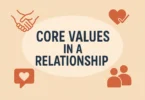What are The Signs of an Unhealthy Relationship? Relationships are meant to be safe spaces where love, respect, and trust can grow. But what happens when that space starts to feel more like a battleground than a haven? The truth is, not every relationship is healthy—and the warning signs aren’t always obvious at first. Whether you’re questioning your current relationship or reflecting on a past one, understanding the signs of an unhealthy relationship is essential for protecting your emotional well-being and mental health. In this post, we’ll break down the red flags you shouldn’t ignore, explore what makes a relationship toxic, and offer guidance on how to heal if you’ve been affected.
Headlines
Understanding the Core of an Unhealthy Relationship
What Defines an Unhealthy Relationship?
An unhealthy relationship isn’t always obvious at first. It doesn’t have to involve yelling, hitting, or dramatic fights to be damaging. Sometimes, it’s the quiet erosion of your self-esteem, the subtle manipulation of your emotions, or the constant tension that leaves you feeling emotionally drained. At its core, an unhealthy relationship is one that hurts your mental health, undermines your emotional well-being, and challenges your sense of self.
One of the first signs of an Unhealthy Relationship something’s off is when trust starts to break down. Maybe your partner constantly questions your whereabouts or accuses you of things without reason. You might also notice a lack of respect—your opinions are dismissed, your feelings aren’t validated, and your needs are consistently placed last. Over time, this chips away at your self-esteem, making you feel like you’re walking on eggshells just to keep the peace.
Another defining trait? The absence of healthy communication. In strong relationships, disagreements are handled with openness and empathy. But in an unhealthy one, poor communication often takes over—think constant defensiveness, blame-shifting, or silent treatments that go on for days. These behaviors make it hard to feel safe, heard, or valued in the relationship.
You may also see a pattern of emotional manipulation, where one partner tries to control the other’s actions, isolate them from friends and family, or use guilt and fear to get their way. These red flags may show up subtly at first, but they’re big indicators that something isn’t right.
In short, if a relationship feels more like a battle zone than a safe haven, it’s time to pause and assess. Mental health professionals like a therapist or relationship counselor can help you identify these patterns clearly and support you in deciding what to do next.
Relationship Counseling: How It Can Transform Your Love Life.
Why Spotting the Red Flags Early Matters
It’s easy to overlook the early signs of an unhealthy relationship—especially when you’re emotionally invested or hopeful things will get better. But ignoring red flags doesn’t make them go away. In fact, the longer they’re left unchecked, the more damaging they become—not just to your relationship, but to your mental health, emotional well-being, and even your physical safety in some cases.
Red flags often start small. Maybe it’s a dismissive comment that stings a little more than it should. Or a moment where your partner crosses a boundary and brushes it off like it’s nothing. Over time, these patterns become normalized. Gaslighting, emotional manipulation, controlling behavior—they sneak in slowly, creating a toxic environment where you start to doubt your own reality or blame yourself for the dysfunction.
The earlier you spot these warning signs, the sooner you can reclaim your emotional power. Recognizing a toxic pattern doesn’t mean you have to end the relationship immediately—but it does give you the chance to step back, reflect, and seek guidance. Talking to a relationship counselor or a licensed therapist can offer clarity and support, helping you decide whether the relationship can be repaired or whether it’s time to walk away.
Letting red flags slide can also lead to deeper forms of harm. What starts as emotional neglect or manipulation can escalate into codependency, verbal abuse, or physical intimidation. And the longer you stay, the harder it becomes to leave—because by then, your confidence and self-worth may have taken a serious hit.
Catching these signs early gives you a better chance of either improving the relationship with healthy boundaries or protecting yourself by moving on before more damage is done. Either way, being aware is your greatest strength. The sooner you see the truth, the sooner you can take action toward healing, growth, and finding the love you truly deserve.
10 Signs of an Unhealthy Relationship You Shouldn’t Ignore
Not every toxic relationship is loud or obvious. Sometimes, it’s the quiet pain that lingers behind smiles or the emotional weight that builds up over time. If you find yourself questioning your relationship more often than enjoying it, it might be time to look at the signs of an Unhealthy Relationship. Below are ten key red flags that could indicate you’re in an unhealthy relationship:
1. Lack of Trust
Trust is the backbone of any healthy connection. When suspicion, jealousy, or constant checking replaces mutual confidence, the relationship begins to crumble. If you feel like you’re being watched, questioned excessively, or accused without cause, these are serious warning signs.
2. Poor Communication
Healthy communication means feeling heard, respected, and emotionally safe. In toxic dynamics, conversations often turn into arguments, or worse, complete silence. If you’re met with defensiveness, blame-shifting, or the cold shoulder every time you try to talk, you’re dealing with a serious issue.
3. Controlling Behavior
This may show up subtly at first—your partner choosing what you wear, who you spend time with, or constantly checking your phone. Over time, it creates a power imbalance. Controlling behavior is not love; it’s manipulation masked as concern.
4. Emotional Manipulation
Manipulation often hides in guilt trips, passive-aggressive comments, or twisting your words. You might find yourself doing things just to “keep the peace” or avoid conflict, even if they go against your values. That’s not compromise—it’s control.
5. Jealousy and Possessiveness
While a little jealousy might seem normal, intense possessiveness is anything but. If your partner tries to isolate you from friends or family, gets angry when you talk to others, or treats you like property, these are classic signs of a toxic dynamic.
6. Constant Criticism
Constructive feedback is healthy, but constant put-downs? That’s emotional abuse. If your partner frequently mocks your appearance, intelligence, decisions, or dreams, it’s a major blow to your self-esteem and long-term confidence.
7. Lack of Respect for Boundaries
Every healthy relationship respects individual space and boundaries—whether it’s time alone, privacy, or personal values. If your partner constantly crosses the line or dismisses your limits, it’s a serious sign of disrespect and control.
8. Gaslighting
This psychological manipulation makes you doubt your thoughts, feelings, or memories. If your partner constantly says things like “you’re overreacting” or “that never happened,” they may be gaslighting you. Over time, this can severely damage your emotional stability.
9. Frequent Blame-Shifting
In toxic relationships, one partner often refuses to take responsibility. Everything is somehow your fault—even when it’s not. This constant blame game is emotionally exhausting and leaves no room for healthy growth.
10. You Feel Drained, Not Uplifted
A strong relationship should add to your life, not drain it. If you feel constantly anxious, sad, fearful, or mentally exhausted after being around your partner, that’s a powerful internal signal that something’s not right.
🚨 Don’t Ignore These Signs of an Unhealthy Relationship
The most dangerous thing about toxic relationships is how normalized these behaviors can become. Over time, you may start to believe you deserve this kind of love—or that it’s all you’ll ever get. But that’s simply not true.
Help is available. Whether it’s through a licensed therapist, relationship counselor, or mental health support service, you don’t have to navigate this alone. Recognizing the problem is the first brave step toward healing—and eventually, toward the healthy relationship you truly deserve.
5 Overlooked Relationship Red Flags That Can Ruin Your Love Life
Healing After a Breakup
Walking away from an unhealthy relationship—no matter how toxic—can be one of the hardest decisions you’ll ever make. Even if deep down you know it was the right choice, the aftermath can feel like a whirlwind of emotions: relief, sadness, guilt, confusion, and even self-doubt. Healing after a breakup isn’t just about moving on—it’s about reclaiming yourself, rebuilding your emotional strength, and learning to trust again.
Allow Yourself to Grieve
First things first: it’s okay to grieve. Letting go of someone, even someone who hurt you, still means letting go of the memories, dreams, and emotional bonds you built. Suppressing those feelings can delay your healing. Cry if you need to. Journal your thoughts. Talk to a mental health professional or a supportive friend. This is part of the detox process—emotionally and mentally.
Reconnect with Yourself
Toxic relationships often chip away at your self-esteem and leave you questioning your identity. Now’s the time to reconnect with you. What makes you happy? What are your passions, hobbies, and goals? Rebuilding that connection with yourself helps repair the internal damage done by the relationship—and makes space for personal growth.
Try small acts of self-care:
- Go for solo walks in nature
- Pick up a forgotten hobby
- Practice mindfulness or meditation
- Read empowering books or listen to healing podcasts
These aren’t just feel-good activities—they’re tools that support your emotional recovery.
Set Healthy Boundaries Going Forward
One of the gifts of pain is perspective. Use this experience to reflect on what boundaries you’ll need in future relationships. Learn to recognize red flags early, trust your gut, and speak up when something doesn’t feel right. Boundaries are not walls—they’re self-respect in action.
Seek Support When You Need It
There’s no shame in needing help. Whether it’s a therapist, a support group, or an abuse hotline, reaching out can provide clarity, comfort, and a reminder that you’re not alone. Emotional healing isn’t linear. Some days you’ll feel powerful and free, and other days the weight of the past might sneak back in. That’s normal. Healing takes time—and support can make all the difference.
Open Your Heart—But Only When You’re Ready
Healing isn’t about rushing into something new. It’s about becoming whole again. Eventually, you might feel ready to love again—but this time with clearer vision, stronger boundaries, and a deeper understanding of what healthy love truly feels like.
Take your time. The most important relationship you’ll ever have is the one you build with yourself.
Recognizing the signs of an unhealthy relationship is the first and most important step toward healing, growth, and building a healthier future. Whether it’s subtle manipulation, constant criticism, or a lack of trust, no one deserves to feel small, silenced, or emotionally drained in the name of love. You are worthy of a relationship that uplifts you, supports your goals, and brings out the best in you. If anything you’ve read here feels familiar, know that change is possible—and so is healing. You’re not alone, and you have every right to choose peace, freedom, and happiness moving forward.








Leave a Comment